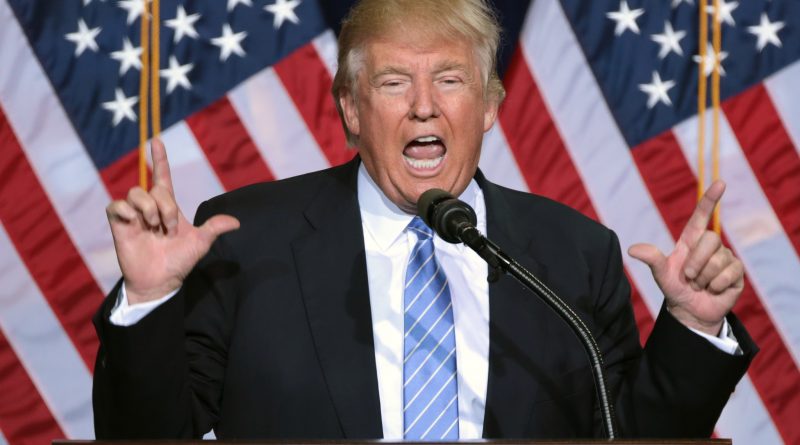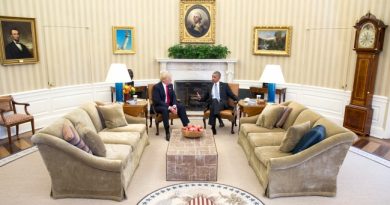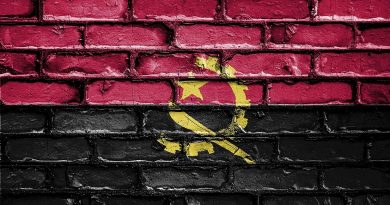Is Trump a North American Chávez?
For those of us with doubts that Trump would try to govern as a populist, his first speech as U.S. President-elect in Ohio on 1 December 2016 made it clear that he will definitely try. In the sections of the speech that came from the written script in the Teleprompter there were some modest signs of an attempt to shift gear.
But Trump made it abundantly clear that he does not intend to be kept within the traditional bounds of the US Presidency. Starting with breaking the traditional bounds of presidential speeches marked by scripts pre-approved by the President but jointly discussed with staff. He explicitly mocked any attempts to keep him bounded to a carefully prepared speech, positively gloating with the cheers of the crowd when he – more than once – made clear that he was engaging in long stretches of impromptu improvising of his own.
Talking the Populist Talk.
This was not the occasional aside. During one of them, he announced in mock secret the appointment of a new Secretary of Defense. And claimed that General Mattis was the new George Patton (happily he is not, he is a thinking general who values alliances, but this is beside the point for the present argument).
During another of these outbursts, Trump engaged in what has become a trade mark attack on the independent media that he portraits as systematically hostile to him and engaged in lies. In fact, it was Trump and his campaign that has been regarded by all credible fact-checkers as breaking all records in engaging in outright lies.
Rants against the independent media.
Chávez resorted to state TV and measures against the press. Trump does not need to. The latter has boasted that Twitter allows him to have a newspaper without the associated costs and losses. He also does not need a TV Show like Chávez’s “Aló Presidente”. Trump can use You Tube as he did for his first address as President-elect. The new media provides ideal ways for a self-proclaimed strong leader like Trump – a professed admirer of other strong leaders like Puting – to link directly with the ‘real people’ who support him against the ‘crooked elites’ who oppose him.
If this is the speech Trump makes after winning the election, while having lost the popular vote and with with the highest unpopularity rates of an elected president, it is clear to me that he is going to try to overcome it by using populist methods. Maybe Trump will try to unite the people – ‘real Americans’ – but unite them under him, and on his terms.
To govern as a populist is possible.
But what many experts in traditional US politics do not seem to understand, however, is that YOU CAN GOVERN AS A POPULIST. Even if this does not mean effective policy, it can be very effective politics.
When things go wrong, a populist leader will blame enemies foreign and domestic. He will attack elites (Trump attacked twice the Republican governor of Ohio who opposed him). They will divert attention by wrapping themselves around the flag (Trump twitted that he wants to strip of American citizenship those who burn the US flag in protest, despite the fact that this is considered a constitutional right even by very conservative judges).
Fighting a charismatic populist is difficult.
Maybe North America is different from South America. North American political institutions are older and have proven solid across two centures. North Americans, despite all the discontent post-2008 crisis still have more to loose from the status quo. But I would still look carefully at contemporary South American caudillos. Many in the Right or the Left will not like the Chávez comparison, I am aware of that. Maybe the showbiz alternative represented by Evita Péron would be more palatable? Or perhaps Getúlio Vargas, known in Brazil as “pai dos pobres e mãe dos ricos”/”father of the poor and mother of the rich”, given the fact that Trump seems to be appointing the most plutocratic Cabinet in recent US history?
The one thing I have read that dealt with Trump from this point of view is “American Caudillo“. My main criticism is the title: most caudillos have been Americans, nothing new there, but so far not North Americans. Will Trump amaze us by becoming one?
Donald Trump. Photo by Gage Skidmore / CC BY-SA 2.0
![]() This work is licensed under a Creative Commons Attribution-NonCommercial-ShareAlike 4.0 International License.
This work is licensed under a Creative Commons Attribution-NonCommercial-ShareAlike 4.0 International License.




